Israel-Hamas War Forces More Gazans To Flee South
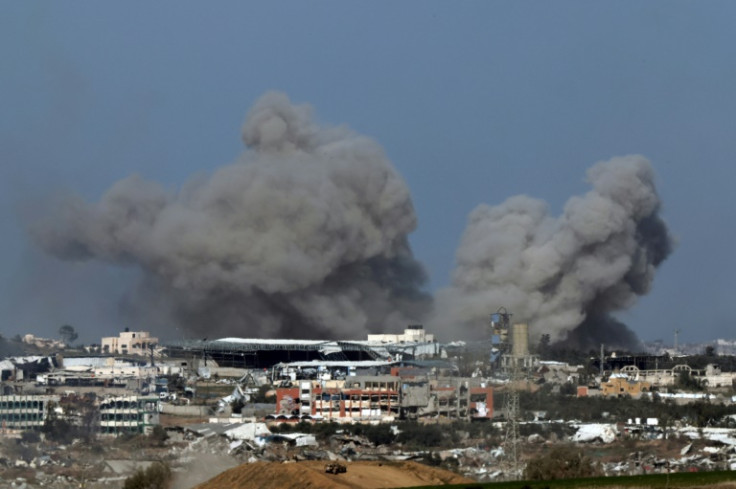
Israel again pounded Gaza on Friday, nearly 12 weeks into the war that has devastated much of the besieged Palestinian territory and forced many hundreds of thousands to flee their homes.
As a Hamas delegation visited Cairo to discuss an Egyptian plan to end the fighting, UN chief Antonio Guterres reiterated his call for "an immediate humanitarian ceasefire" in the bloodiest ever Gaza war triggered by the October 7 attack on Israel by the Palestinian militants.
Tensions have also flared between Israel and Iran-backed armed groups in Lebanon, Iraq, Syria and Yemen, and Guterres warned of a further "spillover of this conflict, which could have devastating consequences for the entire region".
With vast areas of northern Gaza in ruins, Israeli air strikes and ground combat have focused on central and southern districts, driving ever more displaced families into crowded areas around southern Rafah near the Egyptian border.
The UN says more than 85 percent of Gaza's 2.4 million people have fled their homes, with many now going hungry and braving the winter rains in makeshift tents.
Intense fighting around central Deir al-Balah and the biggest southern city, Khan Yunis, has forced about 100,000 newly displaced people into overcrowded Rafah, said the UN humanitarian office, even as targets there were bombed too.
Rafah residents combed through rubble for survivors and bodies after another deadly air strike Thursday.
One local man, Tayseer Abu al-Eish, said he was at home when "we heard a loud explosion and debris started falling on us.
"My daughters were screaming."
UN World Health Organization chief Tedros Adhanom Ghebreyesus said he was "very concerned" about the growing threat of infectious diseases "as people continue to be massively displaced across the south of Gaza".
The military said it had "eliminated dozens of terrorists" across Gaza over the past 24 hours and was "extending operations in Khan Yunis", the hometown of Hamas's Gaza chief Yahya Sinwar.
Hamas -- considered a "terrorist" group by the United States and European Union -- on October 7 launched the worst attack in Israel's history that left about 1,140 people dead, mostly civilians, according to an AFP tally based on Israeli figures.
The Palestinian Islamist militants also took about 250 people hostage, more than half of whom remain inside the war zone, some of them believed dead.
Israel's relentless military campaign since then has killed at least 21,507 people, mostly women and children, according to the health ministry in Hamas-ruled Gaza.
Israel's army says 168 soldiers have been killed inside Gaza.
South Africa filed an application on Friday at the International Court of Justice to start proceedings against Israel for what it said were "genocidal acts against the Palestinian people in Gaza".
"Israel rejects with disgust the blood libel spread by South Africa and its application" to the court, Israeli foreign ministry spokesman Lior Haiat wrote on X, formerly Twitter.
An Israeli siege imposed after October 7, following years of crippling blockade, has deprived Gaza's people of adequate supplies of food, safe water, fuel and medicine.
UN humanitarian chief Martin Griffiths bemoaned "an impossible situation for the people of Gaza, and for those trying to help them".
A UN aid convoy came under fire by the Israeli military without causing casualties, the UNRWA agency said.
The severe shortages have been only sporadically eased by humanitarian aid convoys entering primarily via Egypt.
A truckload of fresh food, including meat, eggs and fruit, reached a Rafah market Friday, bringing some relief.
"This is the first time eggs and some types of fruit have entered Gaza from Egypt," said vendor Muntasser al-Shaer. "All types of fruit are missing in the markets. There are some vegetables but they're really expensive."
While Israel has repeatedly vowed to destroy Hamas, Cairo has proposed a plan involving renewable ceasefires, a staggered release of hostages for Palestinian prisoners and ultimately an end to the war, say sources close to Hamas.
Speaking to AFP on condition of anonymity, a Hamas official said a delegation visiting Cairo would "give the response of the Palestinian factions, including several observations" regarding the proposal Egypt submitted to Hamas and Islamic Jihad.
Hamas would seek "guarantees for a complete Israeli military withdrawal" from Gaza, the official said.
Looking at post-war Gaza, the proposal provides for a Palestinian government of technocrats after talks involving "all Palestinian factions", which would be responsible for governing and rebuilding the territory.
Israel has yet to formally comment on the Cairo plan, but Prime Minister Benjamin Netanyahu told families of hostages on Thursday that "we are in contact" with the Egyptian mediators and promised on the captives that "we are working to bring them all back".
In Tel Aviv, hundreds rallied on Thursday calling for a ceasefire.
He said "the atrocities committed by Hamas on October 7 will never be pardoned and excused" but added that "if you don't see the historical context, then you're condemned to repeat the same tragedy over and over again."
Tensions have also flared in the occupied West Bank, where Israeli forces shot dead a Palestinian motorist who had wounded four people in an alleged car ramming attack.
The Gaza war has seen violence flare elsewhere across the Middle East, where Israel has long waged a shadow war with its arch foe Iran and its allied armed groups.
Israel has traded heavy cross-border fire with Lebanon's Iran-backed Hezbollah and said Friday it had again struck targets there in response to rocket fire.
The militant group Palestinian Islamic Jihad said two of its fighters were killed Friday in southern Lebanon.
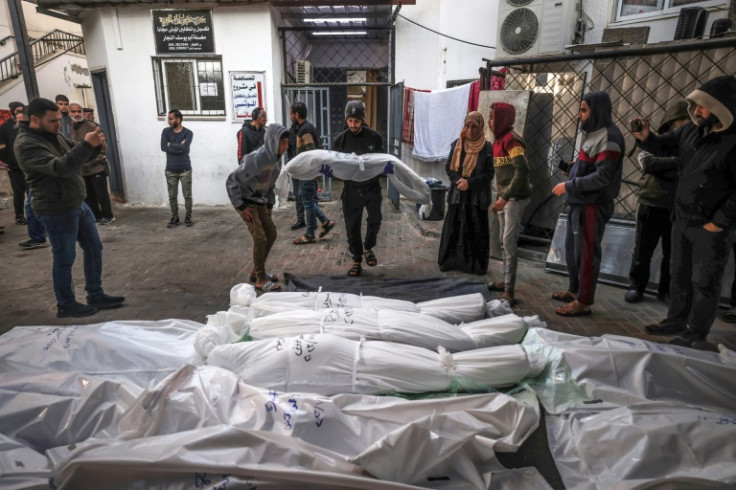
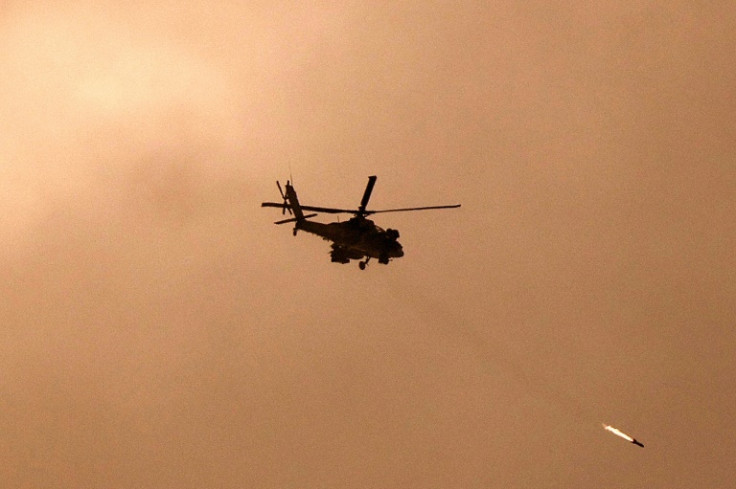
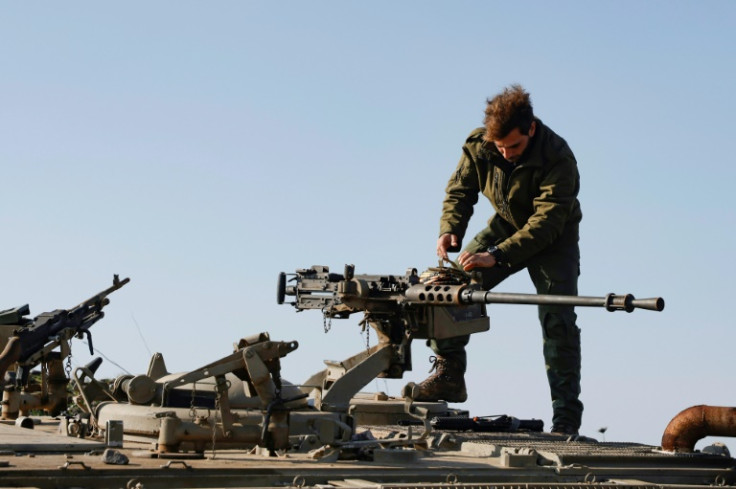
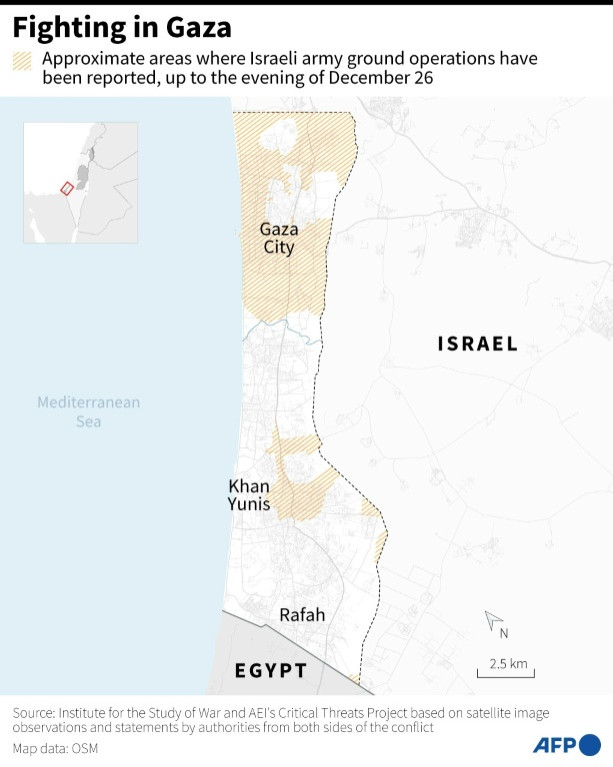
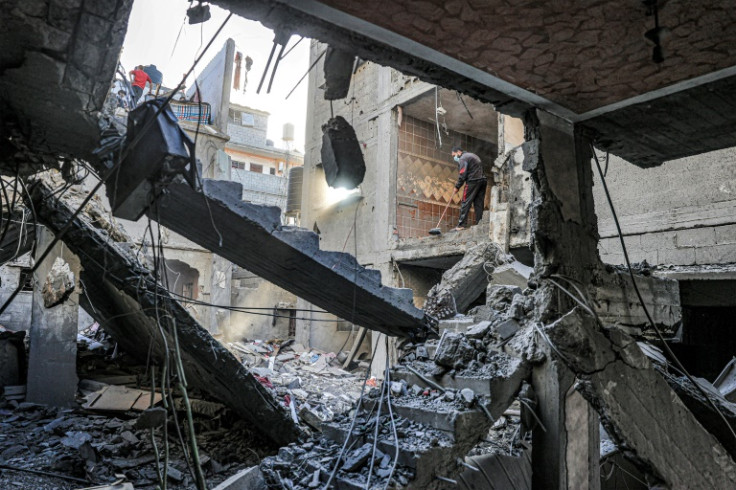
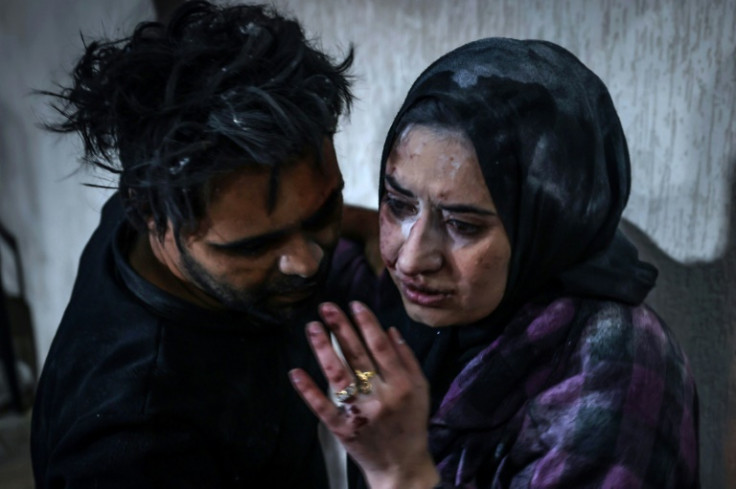
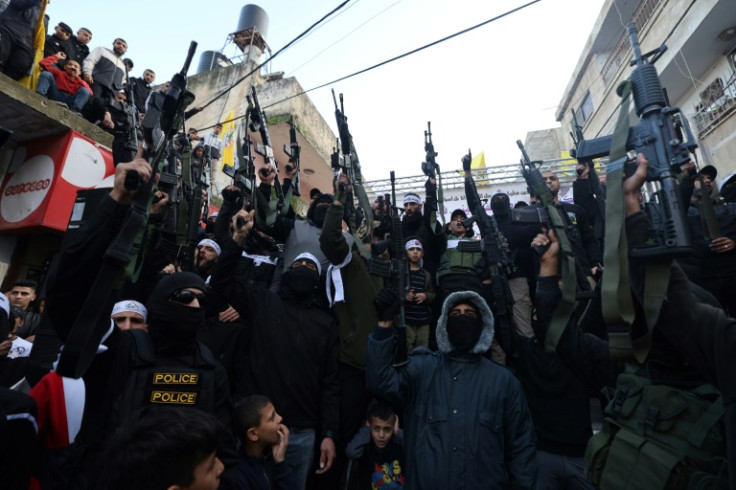
© Copyright AFP 2024. All rights reserved.





















